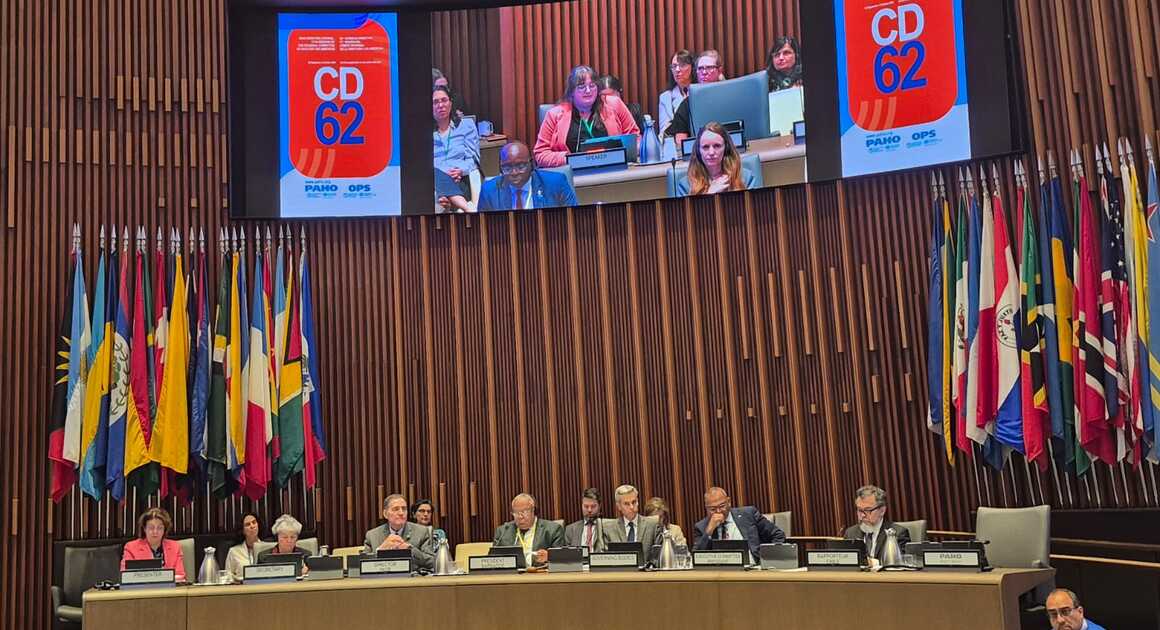Inter-America PSI Marks Historic Participation at PAHO’s 62nd Directing Council

For the first time ever, public services workers represented by PSI were invited to participate in the 62nd Directing Council of the Pan American Health Organization (PAHO, a major step toward ensuring that the voices of health workers and their unions are heard within regional public health policymaking spaces.

Mayra Castro
Represented by a delegation comprising of health workers, as the Haley Quinn, Acting Deputy Director for Health Issues at the American Federation of Teachers (AFT) in the United States and Dr Nayeli Fernández Bobadilla the Secretary of Social Welfare at the Mexican National Union of Social Security Workers (SNTSS), supported by Pedro Villardi, PSI Health Equity Coordinator, PSI delivered statements on seven agenda items, addressing issues such as the health workforce crisis, mental health, equitable access to medicines and technologies, gender equality, and the implementation of international health regulations.
The 62nd Directing Council of the PAHO, the counterpart to the World Health Organization (WHO) responsible for voting on and approving resolutions that define PAHO's mandate and guide public health policy across the Americas, set a bold agenda to address urgent health issues in the Americas by approving the PAHO Strategic Plan for 2026–2031, as well as key resolutions aimed at increasing access to expensive health technologies and preventing and controlling non-communicable diseases (NCDs).
Throughout the interventions, the PSI delegation emphasised that robust, adequately funded public health systems are essential for equitable societies and must not be subordinated to market interests. The organisation called for an end to privatisation and outsourcing practices that erode public systems and weaken the capacity of health workers to serve their communities.
PSI also highlighted the urgent need to address the projected shortage of 600,000 healthcare workers by 2030, as well as the increasing precariousness caused by temporary contracts and inadequate public investment. PSI drew attention to the mental health crisis affecting health professionals, citing evidence that nearly half experienced anxiety, depression, or burnout during the pandemic, and that suicide rates had increased.
Check out PSI delegation interventions during the event